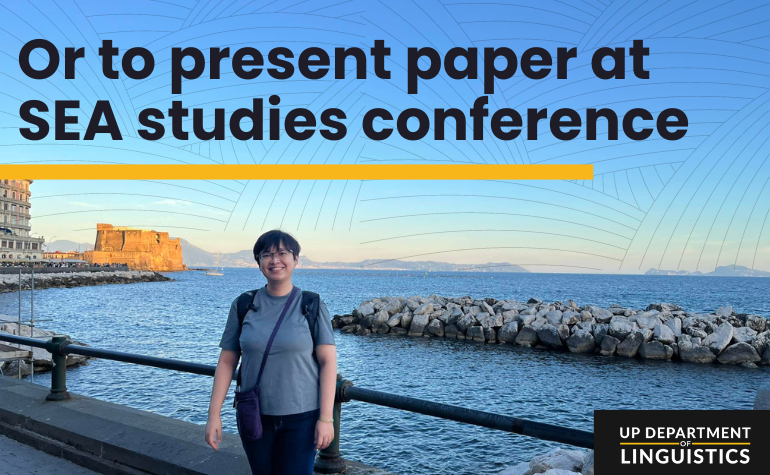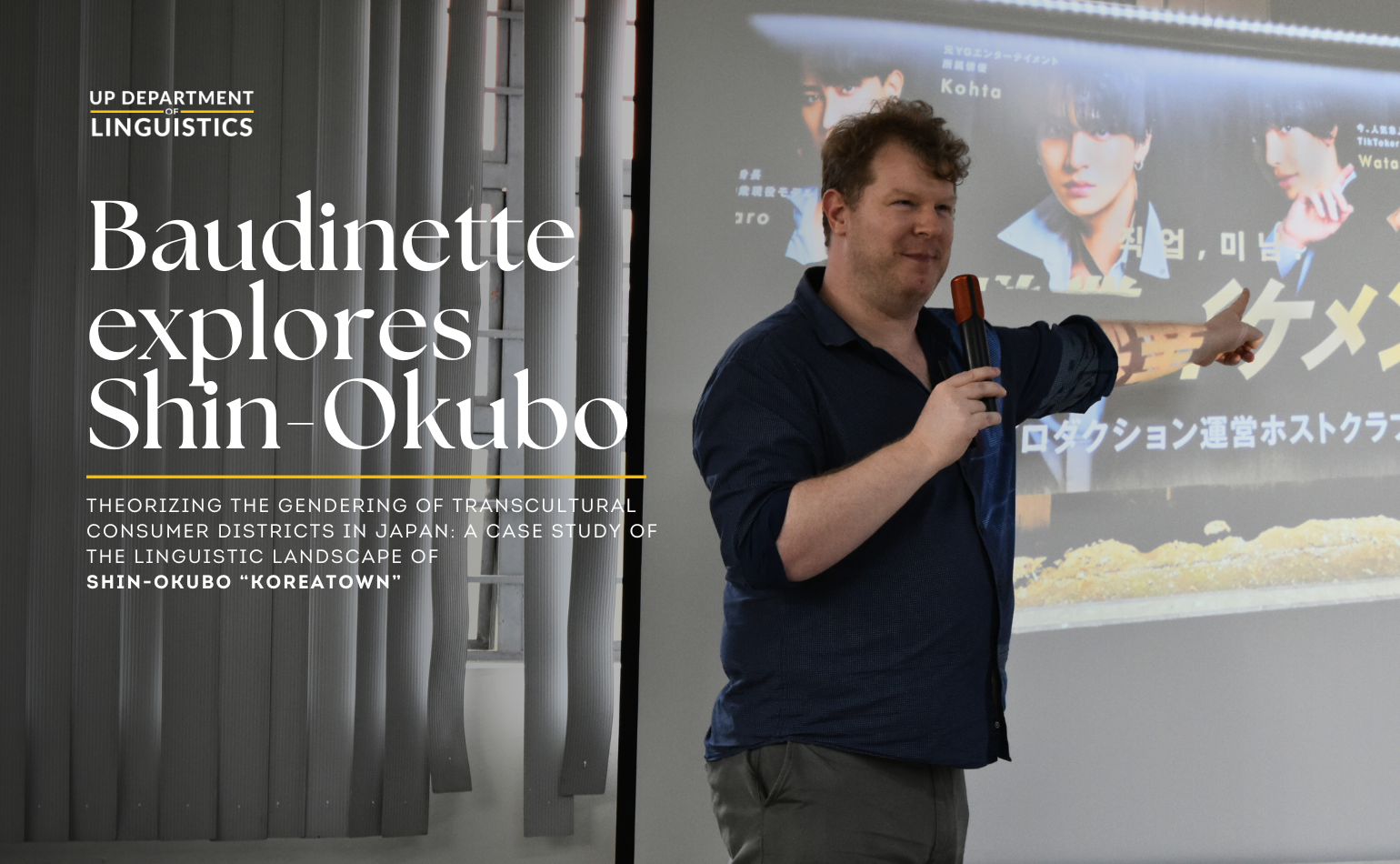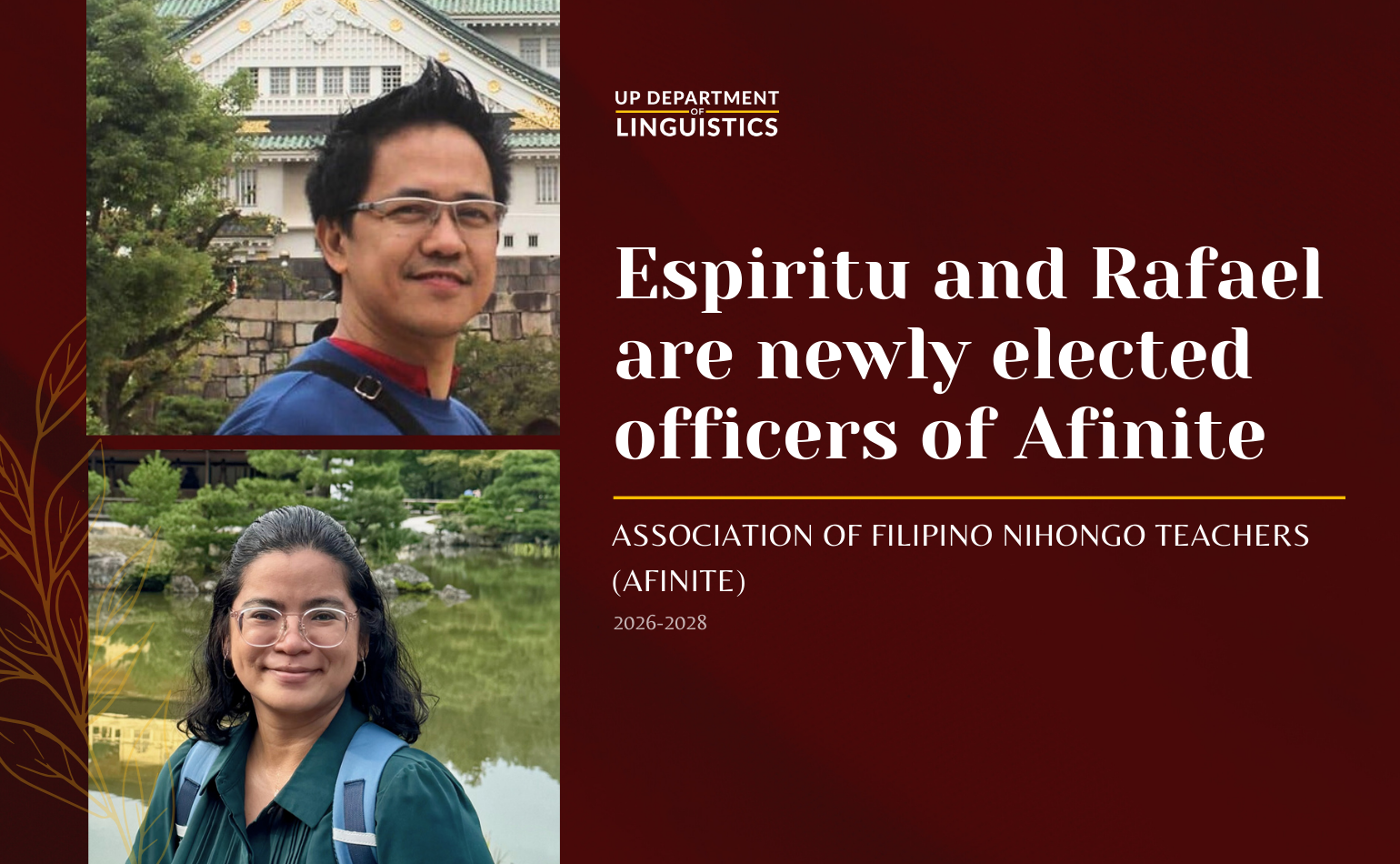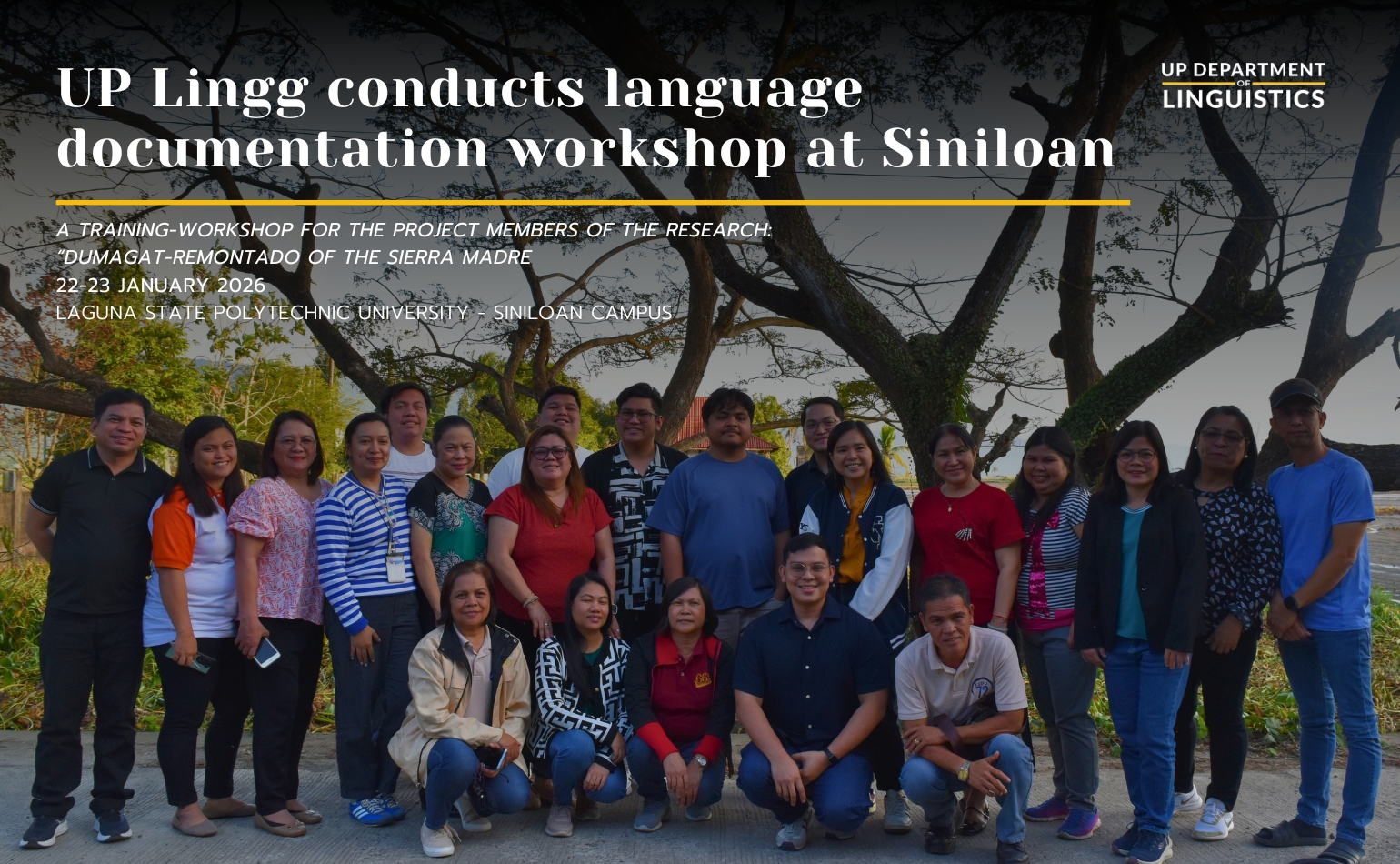
Assistant Professor Elsie Marie Or, who is currently working towards her doctorate degree at the University of Naples, L’Orientale, will be presenting at the 13th conference of the European Association for Southeast Asian Studies (EuroSEAS) hosted by the University of Amsterdam from 23 to 25 July, 2024.
Her paper, “Heritage Filipino in Italy: an investigation on word order and voice,” was co-authored with Francesca Moro and Gina Russo, both from the same institution. The full abstract may be read below:
Heritage Filipino in Italy: an investigation on word order and voice
The present research deals with possible contact-effect in the language of Filipino heritage speakers in Italy. The Filipino heritage speakers in our study are second generation individuals, who speak Italian, Filipino, English (and in some cases also a regional Philippine language, see Moro & Russo 2024). In this paper, we conduct a pilot investigation on two target domains: word-order and voice, as these domains display different degrees of vulnerability to contact in other heritage Filipino varieties, and in heritage languages in general (Tanaka et al. 2019; Benmamoun et al. 2013).
Filipino has a flexible word order with a preference for verb-initial order (VAP or VPA) and passive voice (Cooreman et al. 1984); while Italian has a less flexible system with a preference for verb medial order and active voice. With respect to word order in transitive sentences, we expect second generation speakers to display a preference for verb-medial order under the influence of Italian and English. Similarly, we expect influence from the dominant language(s) also on the voice system, possibly yielding more actor voice constructions.
We collected data from a group of 24 speakers: 10 heritage speakers of the second generation, and 14 first generation immigrants, who were not born or raised in Italy, but immigrated during adulthood. We employ the same methodology and video elicitation stimuli of Tanaka et al. (2019) in order to allow for a cross-diasporic comparison (Bondoc et al. 2018). The pairs of clips are meant to elicit transitive constructions with different voice marking, such as There are a boy and a girl, the boy is pushed by the girl; see Fig. 1).
Figure 1: Example of target clips to elicit transitive constructions
Preliminary results show that, with respect to word order, second generation speakers do use more frequently two types of verb medial constructions: AVP (with an English verb), as in (1) and AVApronP, as in (2) with a resumptive pronoun referring to the agent.
A V P(obl.)
(1) Yung babae nag-push sa lalaki
that girl AV-push obl boy
‘The girl pushed the boy.’
A V Apron P
(2) Yung babae t-in-ulak niya yung lalaki
that girl PV-push 3sg that boy
‘The girl pushed the boy’.
The voice system also differs as second generation speakers use twice more often actor voice than first generation speakers. The results of this pilot study seem to indicate that the domains of voice and word order are indeed vulnerable to contact effect, as shown by Tanaka et al. (2019), with interesting innovations introduced in the heritage language.
Benmamoun, E., S. Montrul, & M. Polinsky. (2013). Heritage languages and their speakers: Opportunities and challenges for linguistics. Theoretical linguistics, 39(3-4), 129-181.
Bondoc, I. P., W. O’Grady, K. Deen & N. Tanaka. (2018). Agrammatism in Tagalog: voice and relativisation. Aphasiology 32(5), 598-617.
Cooreman, A., Fox, B. A., & Givón, T. (1984). The discourse definition of ergativity. Studies in Language, 8(1), 1-34.
Moro, F., & G. Russo. (2024). Family language policy in multilingual Filipino families in Italy. Journal of Multilingual and Multicultural Development, 1-15.
Tanaka, N, W. O’Grady, K. Deen, & I. P. Bondoc. (2019). Comprehension and production of word order and voice in bilingual Tagalog speakers. Poster presentation at the Second Language Research Forum, held in East Lansing, Michigan, on September 21, 2019
The conference aims to “contribute to sustaining and re-imagining a critically engaged Southeast Asian studies that will remain relevant in years to come.” Additional information can be found at their official website.
Published by UP Department of Linguistics



